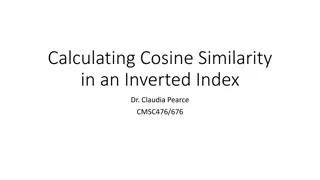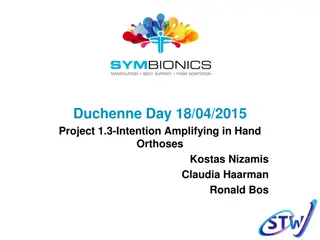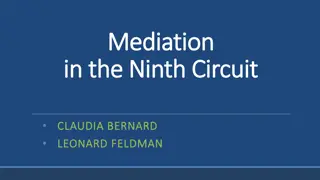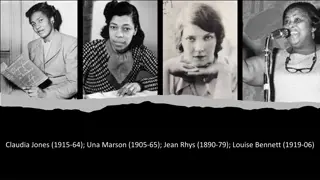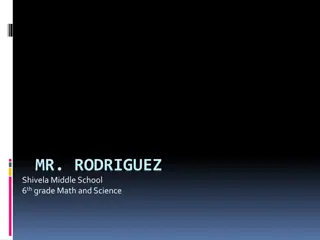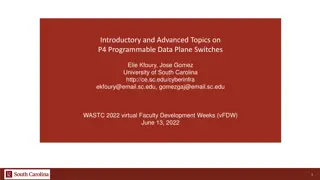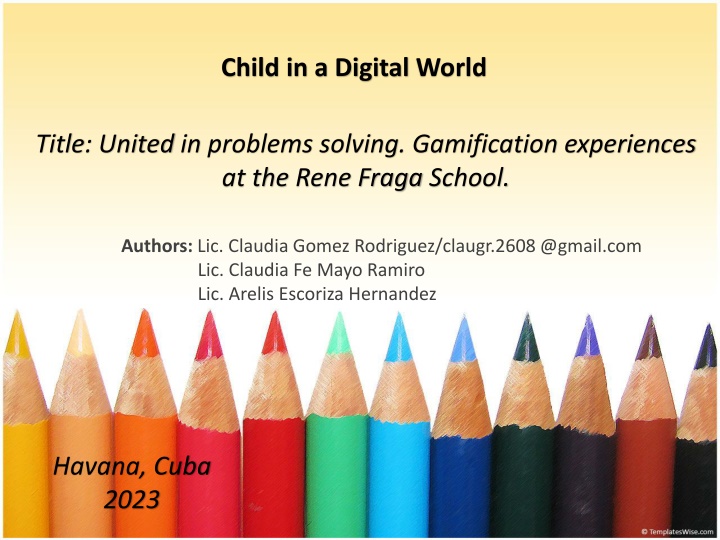
Gamification for Problem Solving: Insights from Rene Fraga School Study
Explore the impact of gamification on problem-solving skills in 6th-grade students at Rene Fraga School in Havana, Cuba. The study delves into the effectiveness of gamification in the Cuban educational context, focusing on developing problem-solving abilities through engaging methods. Results show varying skill levels achieved and awards earned, highlighting the benefits and challenges of implementing gamification in education.
Download Presentation

Please find below an Image/Link to download the presentation.
The content on the website is provided AS IS for your information and personal use only. It may not be sold, licensed, or shared on other websites without obtaining consent from the author. If you encounter any issues during the download, it is possible that the publisher has removed the file from their server.
You are allowed to download the files provided on this website for personal or commercial use, subject to the condition that they are used lawfully. All files are the property of their respective owners.
The content on the website is provided AS IS for your information and personal use only. It may not be sold, licensed, or shared on other websites without obtaining consent from the author.
E N D
Presentation Transcript
Child in a Digital World Title: United in problems solving. Gamification experiences at the Rene Fraga School. Authors: Lic. Claudia Gomez Rodriguez/claugr.2608 @gmail.com Lic. Claudia Fe Mayo Ramiro Lic. Arelis Escoriza Hernandez Havana, Cuba 2023
An approach to the theory of gamification a) Transform tedious and boring activities into . b) Facilitates user participation. c) Has strong links whit the social structure and social media, its origins relationship whit social network. d) Builds user loyalty through reinforcements and punishments. have a strong
Investigation objectives General objective To explore the effect of the gamification method in the implementation of an educational program to develop the ability to approach and solve problems, in 6th grade children of the Rene Fraga School. Specific objectives Explore the viability of the gamification method in the Cuban context. Develop the ability to approach and solve problems in 6th grade children from the Rene Fraga School.
Methodology Techniques and instruments Sociometric test Group sessions Sample characterization 25 students from the Rene Fraga School. Age: between 10 and 11 years. Sex: girls predominate. Skin color: common is white. the most
Results Skill level achieved during the sessions 17 16 15 12 11 10 9 9 8 7 7 5 5 5 4 4 4 2 SESI N 1 SESI N 2 SESI N 3 SESI N 4 SESI N 5 SESI N 6 Buena Regular Mala
Results Awards achieved in the sessions 25 25 18 12 12 11 11 10 6 5 5 5 5 4 4 3 4 3 2 3 1 1 1 1 0 0 0 0 0 0 0 0 0 0 0 0 0 0 0 0 0 0 NINGUNA APREND A EXPRESAR MIS OPINIONES APREND A ESCUCHAR A MIS COMPA EROS APREND A PLANTEAR PROBLEMAS APREND A RESOLVER PROBLEMAS APREND A TRABAJAR EN EQUIPO APREND A CUIDAR LA LIMPIEZA DEL AULA Sesi n 1 Sesi n 2 Sesi n 3 Ssesi n 4 Sesi n 5 Sesi n6
Conclusions Gamification proved to be an effective method because it was able to generate interest and motivate studients Despite the evolution of the students, a total assimilation of the skill was not achieved The dimensions understood by the students were: Undestanding of the problema, Assumption from different points of view and Steps to be taken
Conclusions The rest of the dimensions were expressed literal form, where students only repetead the meaning of dimensions, but did not know what they meant. Teamwork was a significant achivement The use of behavioral and cognitivist principles proved effective, the reward system promoted the quantity and quality of evaluations



